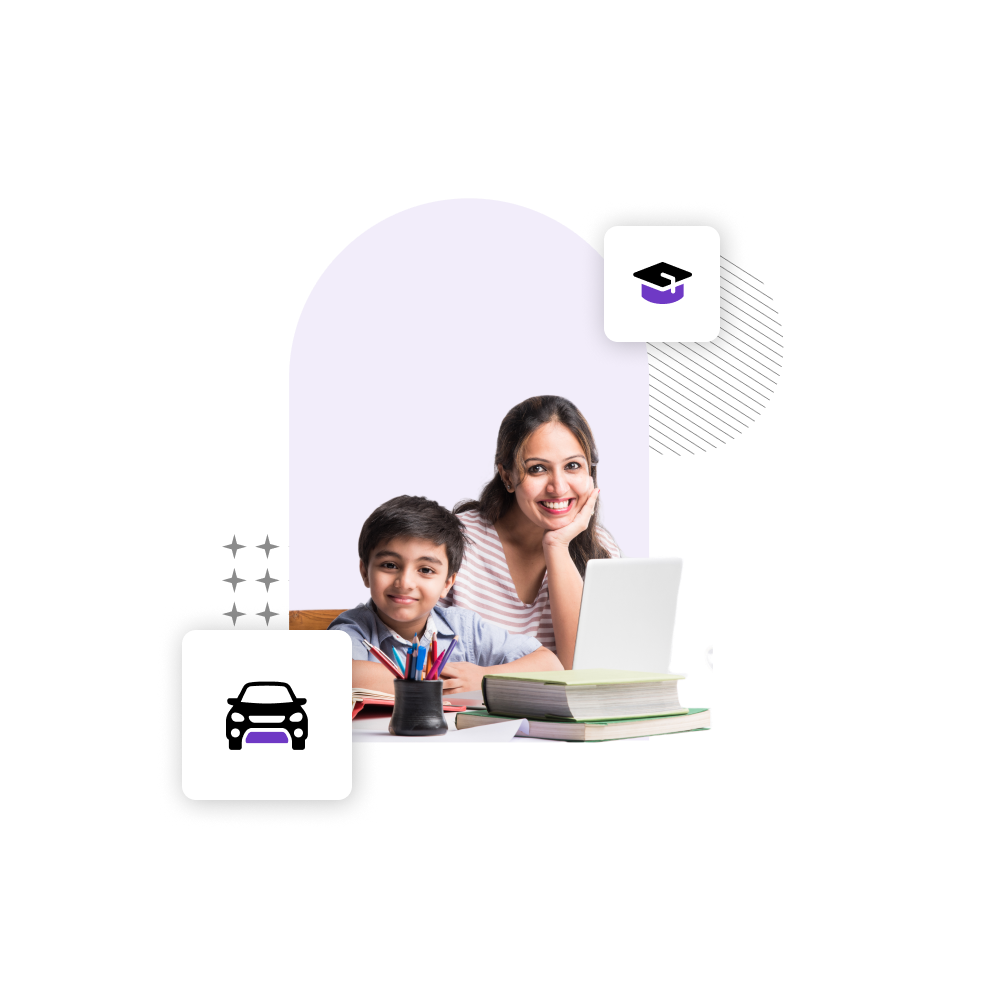Welcome to our website dedicated to goal-planning calculators. While our primary focus is on providing valuable insights and tools to help you achieve financial security in your retirement years, we understand that major financial decisions, such as car purchase and buying a car, can significantly impact your overall financial well-being. In this comprehensive guide, we will explore the major topics to consider when planning to buy a car, with a specific focus on a car purchase, how to save money to buy a new car and other related keywords. We aim to provide you with the necessary information to make informed decisions and prioritise your financial goals.
Evaluating Your Options for a Car Purchase
When it comes to a car purchase, it is crucial to evaluate your options thoroughly. By considering factors such as your needs, preferences, budget, and long-term goals, you can make a well-informed decision. Start by understanding your transportation requirements, such as the number of passengers, daily commute, and storage needs. Then, assess the different types of cars available, including sedans, SUVs, hatchbacks, or electric vehicles. Evaluating your options ensures that you select a car that not only fulfills your needs but also aligns with your financial capabilities and future plans.
Types of Comprehensive Car Purchase:
1. Buying a New Car:
Purchasing a new car offers the latest features, warranty, and customisation options. Car purchase involves researching various models, comparing specifications, and test-driving options to find the perfect fit.
2. Buying a Second-Hand Car:
Buying a second-hand car offers affordability and a wide range of options. Car purchase of a used vehicle involves evaluating its history, condition, mileage, and maintenance records.
3. Best Cars to Buy:
Determining the best cars to buy requires assessing factors such as reliability, safety, fuel efficiency, performance, and resale value. Research and expert opinions play a pivotal role in making an informed choice.
Budgeting your car expenses in advance ensures that you’re not stuck with a vehicle that you can’t afford and will have difficulty paying for. Factor all the costs, including registration tax, road tax, car insurance premium, car maintenance and servicing costs while planning your car purchase. Through section 80 EEB, you can have deductions in tax if you are purchasing an electric vehicle.
How to Save Money to Buy a New Car
Saving money is an essential part of buying a new car. By implementing smart strategies, you can expedite the process and achieve your goal more effectively. Begin by setting a specific savings target and timeframe. This will help you stay focused and motivated. Review your current expenses and consider areas where you can cut back or make adjustments. Creating a separate savings account specifically for your car purchase can also help you track your progress. Additionally, research and compare prices to find the best deals and consider buying during promotional periods to save even more. By incorporating these strategies into your financial Recipe, you can save money to buy a new car without compromising your other financial goals.
Understanding and Setting Your Car Budget
Setting a car budget is a crucial step in the car purchasing journey. By understanding your financial position, income, and expenses, you can determine how much you can afford to spend on a car without straining your budget. Factor in the costs beyond the purchase price, such as insurance, maintenance, fuel, and registration fees. Assessing your financial capabilities and understanding your needs will guide you in setting a realistic car budget. This step helps you avoid overspending and ensures that your car purchase aligns with your overall financial goals and stability.
Weighing the Benefits of Buying a New Car
Buying a new car has its own set of benefits and drawbacks, all of which are essential to consider before making a decision. Newer vehicles generally come with the latest features and technology, enhanced safety measures, and manufacturer warranties. Moreover, you have the opportunity to customise your car according to your preferences. However, new cars also have higher purchase prices, and they depreciate rapidly in the first few years. Weighing these pros and cons, along with your financial capacity, will help you determine if buying a new car is the right choice for you. By incorporating this evaluation into your financial Recipe, you can make an informed decision that aligns with your preferences and financial stability.
Considering Financing Options When You Want to Buy a Car
If you don't have sufficient funds to buy a car outright, exploring financing options is a common practice. Many financial institutions offer car loans with varying interest rates and repayment terms. Comparing the options available, understanding the terms and conditions, and assessing the impact of monthly instalments on your budget are crucial. Additionally, evaluate the total cost of the loan, including any additional fees or charges. Factoring in these considerations will help you make the right financing choice and incorporate it into your overall financial Recipe.
Balancing Luxury and Affordability When Considering a Luxury Car
Some individuals aspire to own a luxury car which combines high-end features and comfort. However, it is important to strike a balance between luxury and affordability. Luxury cars often come with a higher price tag and increased maintenance costs. Conduct thorough research on different luxury car models, assess their long-term ownership costs, and evaluate their resale value. Doing so will help you consider the financial impact of owning a luxury car and determine if it aligns with your budget and long-term financial goals. Incorporate this research into your financial Recipe to make an informed decision when considering a luxury car purchase.
Research and Comparison: Keys to Making an Informed Choice
Researching and comparing options is crucial when planning to buy a car. Begin by researching different car models and understanding their specifications, features, and consumer reviews. Visiting dealerships and taking test drives will enable you to experience the cars firsthand and assess their suitability. Additionally, compare prices from various dealers to find the best deal possible. By following this approach and incorporating it into your financial Recipe, you can make an informed choice that aligns with your needs, preferences, and budget.
Incorporating the Recipe for a Successful Car Purchase
While our website primarily focuses on retirement planning calculators, we understand the significance of major financial decisions, such as car purchase and buying a car. By incorporating keywords such as car purchase, buy a car, buy a new car, how to save money to buy a car, want to buy a car, buy a luxury car, and car budget into our headings, we have provided comprehensive insights into these topics.
Just like following a Recipe in the kitchen, careful planning and financial considerations are crucial when planning to buy a car. By evaluating your options, creating a savings plan, setting a car budget, considering financing options, weighing the benefits of new cars, researching and comparing, and balancing luxury and affordability, you can make informed decisions and prioritise your financial goals throughout the car purchasing process.
At Finology Recipe, we recognise that the journey to car purchase involves more than just choosing a vehicle; it's about finding the right fit for your lifestyle and preferences. Our advanced DIY car planning tool is designed to provide insights and strategies. Whether you're looking to buy a new car, explore the best cars to buy, or delve into the advantages of purchasing a second-hand car, our tool offers solutions that align with your aspirations.
Cruising to Excellence with Expert Car Purchase:
Car purchase is not just about acquiring a vehicle; it's about enhancing your lifestyle, meeting your requirements, and reflecting your personality. By comprehending the intricacies of car purchase, exploring different car options, and considering your life stage, you can embark on a journey toward car ownership with confidence. Utilising expert guidance, such as our DIY car planning tool at Finology Recipe, can be the driving force that turns your car dreams into reality. Your car choice is an extension of you – make sure it's a choice that you'll enjoy for years to come.
To enhance your car buying journey, upgrade to our premium offerings and get investment advice from our experts to bridge the gap between the plan and reality.
SEBI Registered Research Analyst Details:
Registered Name : Finology Ventures Private Limited (RA Division)
Brand Name : Finology 30
Type of Registration : Non-Individual
Registration No : INH000024277
Principal Officer : Antra Mahto | Email: compliance.ra@finology.in | Phone: 99816-91677
BSE Enlistment No. : 6877
Validity : Dec 16, 2025 - Dec 15, 2030
Advertisement Approval No : 08012026-6877/07
Registered Address : Finology Ventures Pvt. Ltd., 4th Floor, Avinash One, VIP Road, Opposite to Magneto Mall, Raipur, Chhattisgarh - 492001.
CIN : U74999CT2018PTC008679
Telephone : 022-489-66660 | Email : support@finology.in
SEBI Regional Office: SEBI Bhavan, Western Regional Office, Panchvati 1st Lane, Gulbai Tekra Road, Ahmedabad, Gujarat - 380006
SEBI Head Office: SEBI Bhavan BKC, Plot No. C4-A, 'G' block, Bandra Kurla Complex, Bandra (East), Mumbai, Maharashtra, 400051
Disclaimer & Disclosure
Permanent Account Number (PAN) of all current and prospective clients shall be collected for Know Your Customer (KYC) purposes in compliance with SEBI regulations and applicable circulars. These details are securely stored and retained for a minimum of five years, during which they cannot be altered or deleted.
The securities quoted are for illustration only and are not recommendatory.
Investment in securities market are subject to market risks. Read all the related documents carefully before investing.
Registration granted by SEBI, Enlistment with BSE and certification from NISM in no way guarantee performance of the intermediary or provide any assurance of returns to investors.
Please read the complete disclaimer here.
 47k users created this goal.
47k users created this goal.








